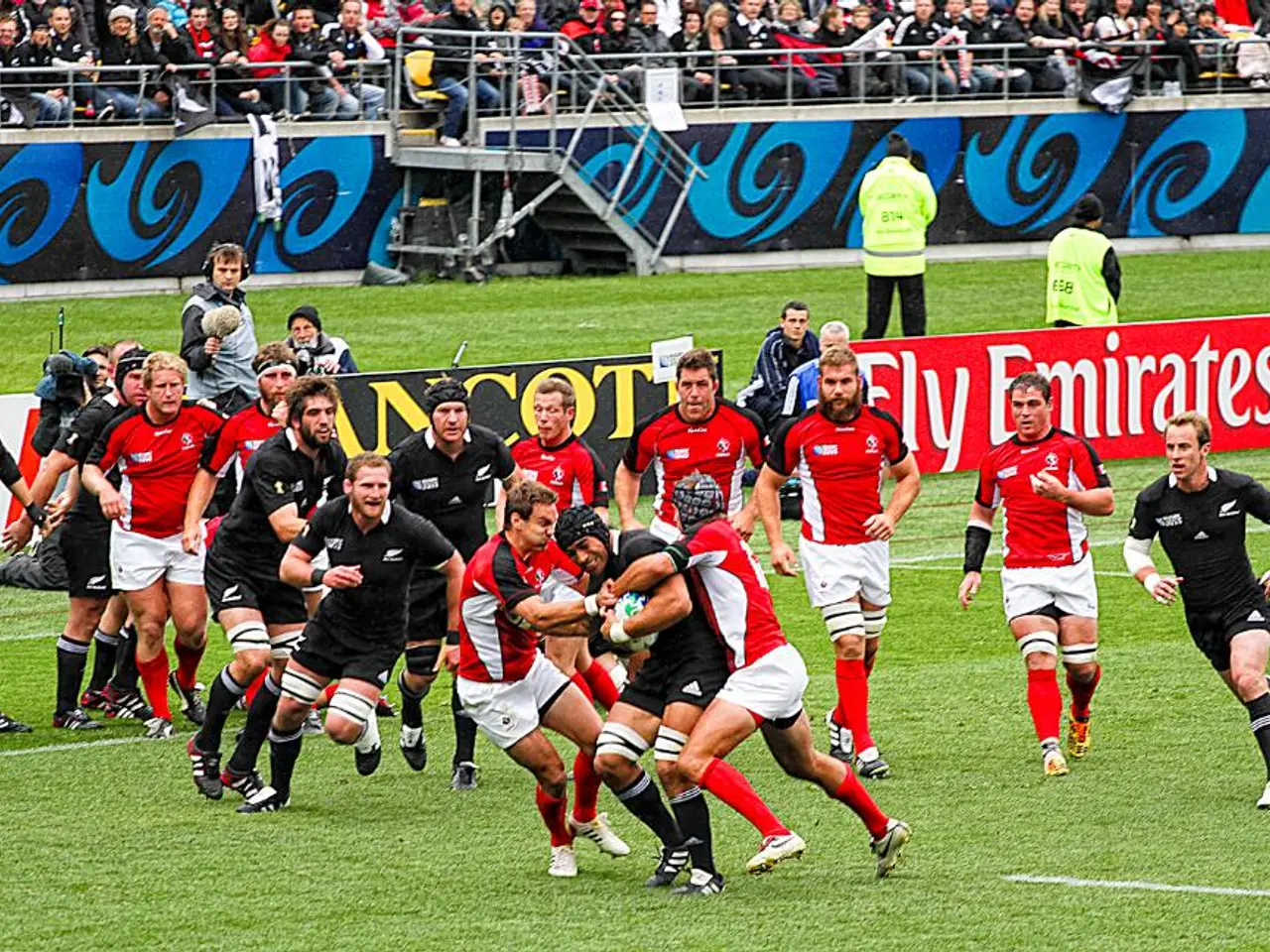Trump unveils an extensive executive order regarding college sports, but it doesn't deliver the immediate solution that the White House had touted
President Trump Signs Executive Order on College Sports
President Donald Trump has signed an executive order aimed at reforming college sports, outlining several key policies to curtail improper third-party payments to athletes, support fair endorsement compensation, and protect or expand scholarships, particularly in women's and non-revenue sports.
The order prohibits "third-party, pay-for-play payments" to collegiate athletes, reaffirming the NCAA's existing stance that athletes should not receive payments that effectively function as salaries from boosters or outside parties. However, it allows endorsement deals if they reflect a "fair market value." This means athletes can accept brand endorsement payments that are reasonable and not disguised pay-for-play schemes.
Schools with athletic department revenues over $50 million are required to preserve scholarship opportunities in "non-revenue sports," which include most women's sports and sports other than football and basketball. Schools with more than $125 million in athletic revenue are directed to increase scholarships for non-revenue sports in the upcoming academic year, aiming to expand opportunities beyond the high-profile, revenue-generating sports.
To enforce these policies, the President instructed federal agencies, including the Departments of Education, Justice, Health and Human Services, and the FTC, to develop a plan within 30 days. This plan will leverage mechanisms such as federal funding decisions and Title IX enforcement to ensure compliance.
The order also calls for clarification of collegiate athletes' employment status, with the National Labor Relations Board tasked to address this issue.
NCAA president Charlie Baker has appreciated Trump's order but believes Congress should make the most important changes. The order does not lay out a specific enforcement mechanism, and the NCAA has already modified rules to address some of the points spelled out in the order.
The SCORE Act, led by the Energy and Commerce committee, Education and Workforce committee, and Judiciary Committee, will complement the President's executive order. Republican Reps. Brett Guthrie of Kentucky, Tim Walberg of Michigan, and Jim Jordan of Ohio have thanked Trump for the order and urged their colleagues to pass a law enshrining changes.
The order uses the word "should" 10 times, while binding federal laws and executive orders with enforcement mechanisms typically use the word "shall." Departments that made less than $50 million should not shrink scholarship opportunities or roster spots in non-revenue generating sports.
The order calls on Education Secretary Linda McMahon, Attorney General Pam Bondi, Secretary of Health and Human Services Robert F. Kennedy Jr., and Federal Trade Commission Chairman Andrew Ferguson to develop a plan to advance the policies set forth in the order within 30 days.
The NCAA is advocating with student-athletes and their schools for a bipartisan solution with Congress and the Administration, and is making positive changes for student-athletes by mandating health and wellness benefits and guaranteeing scholarships. The order aims to preserve and expand college sports.
- The executive order on college sports, signed by President Trump, not only aims to reform sports in educational institutions but also endorsement deals for athletes, ensuring these agreements reflect a "fair market value."
- Schools with athletic department revenues over $50 million are required to preserve scholarship opportunities in sports other than football and basketball, which typically include most women's sports and non-revenue sports, as outlined in the order.




